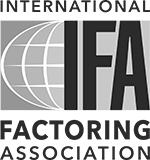Whether you’re new to invoice factoring or have used it as a working capital solution before, you may still have some questions about the details of how it works. In this series of invoice factoring FAQs, we review some of the most common questions we get, along with the answers to ensure you have the right information before you get started.
If you have a question that isn’t listed here, please don’t hesitate to get in touch.
Invoice factoring FAQs: How invoice factoring works
What is invoice factoring?
Invoice factoring is a method of funding that lets you access money against your open client invoices.
How does invoice factoring work?
Your lending partner, known as a factor, purchases unpaid invoices business and provides them cash upfront at a discount. At Liquid Capital, we purchase your outstanding invoices and advance you up to 85% of the value. We then collect the funds from your client on your behalf and transfer the remaining balance to you, less applicable fees.
Learn more about the details of how invoice factoring works.
Is invoice factoring a loan?
No. Invoice factoring is not considered a business loan because you’re selling unpaid invoices to get money already owed to you. It’s an excellent way for a company to immediately improve cash flow, especially when experiencing a cash shortage. However, invoice factoring can (and should) be used as an ongoing financial tool for reliable working capital.
Does my business qualify for factoring?
If your business sells products or services and accumulates a high number of invoices from credit-worthy customers, you may be eligible for invoice factoring. Learn more about our requirements and how you can partner with Liquid Capital.
Is factoring invoices a good idea?
Invoice factoring is a good idea if you need to inject capital into your business without adding more debt to your books. Many companies use invoice factoring to speed up incoming cash flow and meet operational expenses such as payroll, lease payments, supplier payments and inventory purchases. However, you have complete freedom to use the funds for whatever you need.
Is it true that some people factor their accounts receivable for reasons other than getting their cash faster?
Absolutely. Reliability is important, so getting paid on a consistent date allows you to plan your expenses such as payroll and other ongoing obligations. In addition, you may cut costs by not having to allocate your team member’s time to follow up with the clients about the status of payments. Instead, they can focus on your business, and we make sure the payments come in on time and in full.
What kind of invoices are eligible for factoring?
At Liquid Capital, invoices 90 days and under are eligible for invoice factoring.
Invoice factoring FAQs: Costs and process
How much does invoice factoring cost?
When working with a factoring partner, understanding the fee structure is essential. Many factoring companies attract customers with low upfront costs but may charge other fees that could add up and put a dent in your pocket. Here’s a quick read on what kind of fees you should be on the lookout for. Also, keep in mind that accepting a credit card for payment on your invoices could even be more expensive than factoring. Your Liquid Capital partner can walk you through the details so you can compare all options.
Do banks do factoring?
Not quite. Most traditional financial institutions don’t offer invoice factoring but may partner with other funding companies to serve their customers. At Liquid Capital, we have a strong referral network and work with many different banks and commercial lenders to extend our solutions to their clients. We are happy to work alongside our extended partner network.
Do I have to apply every time I need factoring on my invoices?
No. We will conduct an initial approval process at the time of your first application. For any subsequent funding needs, we’ll be able to assist you based on your credit limit approved by Liquid Capital.
Is there a limit on factoring?
A factor should be able to provide you with capital based on the value of your unpaid invoices. If your company generates invoices worth millions of dollars, reputable and large factoring companies will be able to provide you adequate funding.
What is a reserve?
A “reserve” is a percentage of the invoice the factor keeps until the end customer pays the invoice. Discuss these reserves, fees and associated timelines with your lending partner.
How are reserves calculated?
Let’s say you’re selling a $10,000 invoice to a factoring company. They may hold a reserve of $1,000 and you would receive the $9,000 immediately. Once the end customer pays the invoice in full, the factoring company will forward you the reserve fund of $1,000 minus their fees.
Do I need to sign a long-term contract for invoice factoring?
At Liquid Capital, we don’t require you to sign a long-term contract, and your contract with us can be exited at any time without penalties or exit fees. While other factoring companies make long-term contracts a requirement, we don’t lock our clients in.
Rather, we prefer to work by your side as a strategic partner that offers the right funding when you need it. If invoice factoring is the right solution for you now, then we will help you. If other types of financing are the better option for you, we’ll also let you know that.
What are the terms and cancellation policies?
A reputable factoring company will never lock you in a lengthy contract. When selecting a lender, ensure they offer you flexible terms and conditions and that there are no auto-renewals in place. They should also offer a 30-day cancellation policy, so if you are no longer in need of funding, you are free to end your contract with them.
Invoice factoring FAQs: Finding the right partner
What is the difference between pledging accounts receivable and invoice factoring?
Some lenders may offer to pledge accounts receivable using your unpaid invoices as collateral, offering you a portion of the invoices up front as a loan — aka, debt. However, they will not collect payment from your end customer and will generally be more particular in which invoices can be used. Invoice factoring is different since the factor is buying your outstanding invoices at a discount and collecting payment on your accounts receivable for you. No debt is incurred
Is my information safe with factoring companies?
At Liquid Capital, your information is safe. All underwriting information is kept and held at a strict level of confidence. As part of our funding process, we will see and review some of your personal and business banking information, including financial statements and bank statements; however, we never share your personal, business or banking information with third parties without your permission.
Our secure online applications also prevent the need to send any sensitive information via email. Your information is always safe and secure with us.
I have heard that alternative lenders will lock you into their facilities for 12 to 24 months and have high penalties for early exits. Is that true?
It can be true of some lenders. Be careful to read agreements carefully, and specifically look for clauses about auto-renewals and exit penalties — both of which can lock you in and cost you extra money. Liquid Capital does not take this approach. We do not auto-renew or have any exit penalty fees. If you are not happy with any of our solutions, we want you to be able exit at any time and say good things about how we treated you.
Instead of factoring, what if I just offered early payment terms to my customers?
This does not always work the way it should. A common term is 2/10 net 30. Many customers will take the discount (although not all will), however, this still does not mean you will get all your money on day 10. Bottom line, the customer will pay you when they want to. It might be on day 10 or they may just print the check on that day, then mail it in a few days — and then you’ll wait even longer until it arrives at your office. In most cases, this can cost you more than invoice factoring. In addition, by offering early payment terms, you may not be able to plan with confidence or rely on the funds being in your bank account by a certain day in order to cover payroll or other liabilities.
What is “flexible factoring” and how is that different than traditional factoring?
As the name implies, with “flexible factoring,” you will have the flexibility to start and stop at any time, with no minimum requirements and no termination penalties. You are in total control of which customers and invoices to fund and when to fund them. This keeps your costs lower and provides maximum flexibility for you.
With many funding partners and financial options, how do I determine which is best for my business?
The right partner will be knowledgeable on a wide variety of solutions. They should be able to help you evaluate which type of solution is best for your business. And if it is not a solution they offer, they will know people who can assist.
Ready for funding? Get in touch today and let’s get started.



